21 Herbs For Hair Growth And How To Use Them
Enjoy the goodness of herbs that help you meet your healthy hair growth goals.
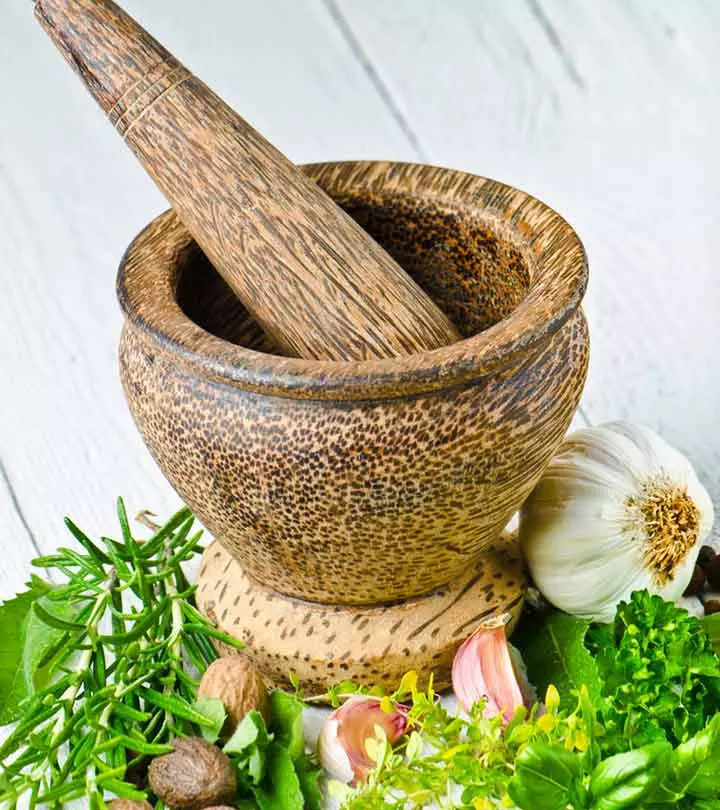
Image: Shutterstock
We have utilized herbs for medicinal and culinary purposes for centuries, and research also points to their myriad health benefits. It doesn’t come as a surprise, then, that there are beneficial herbs for hair growth, too (1). According to a study, herbs may improve blood circulation in the scalp and restrict the enzyme 5 alpha-reductase that causes hair loss (2).
In addition, their anti-inflammatory, antioxidant, and antimicrobial properties help the hair regrow naturally (3). Read on to know more.
In This Article
21 Best Herbs For Hair Growth
Check out these home remedies for hair growth to make hair look thicker and get an improved texture.
1. Aloe Vera
Aloe vera has scalp soothing and anti-inflammatory properties.
It has been used for ages to reduce hair loss. It is also an excellent home remedy for hair damage and dandruff (4).
How To Use
- Scoop out the aloe vera gel from the aloe vera leaf. Mash it with the back of a spoon.
- Add 100 ml of water and stir.
- Boil this mixture and let it cool.
- Massage the mixture onto your scalp.
Or
- Mix 1 tablespoon of the above mixture with 1 tablespoon of coconut oil.
- Massage this mixture onto your scalp.
- Do this once or twice a week.
2. Lavender
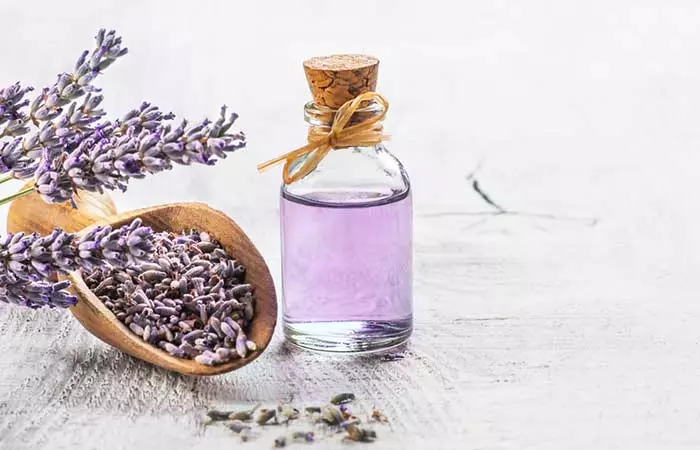
Stress is a known cause of hair loss (5). Lavender oil has a calming aroma and is used as a natural remedy to reduce stress and stress-induced hair loss. Scottish scientists have found lavender essential oil for hairloss quite effective. Along with a carrier oil (grapeseed or jojoba oils), it is a safe and effective treatment for alopecia areatai A condition where circular bald patches start to appear due to severe stress or when the immune system attacks the hair follicles. (6).
How To Use
- Add 3 drops of lavender oil to 100 ml of coconut/olive/jojoba oil.
- Massage this DIY hair oil blend onto your scalp in a circular motion..
- Close your eyes and inhale the aroma while massaging.
- Wait for 30 minutes and wash your hair with shampoo.
- Do this twice a week or whenever you feel stressed.
3. Hibiscus
The leaves and the petals of hibiscus (China rose) have been found to stimulate hair growth and reduce the risk of fungal infections (dandruff) (7), (8). It is also widely used as a hair tonic to enhance hair thickness.
How To Use
- Wash a bunch of hibiscus leaves or flowers under running water.
- Toss them into a saucepan.
- Add 100 ml of water and boil the mixture.
- Remove from heat when the water reduces to half.
- Strain this solution and let it cool.
- Massage this solution onto your scalp gently in a circular motion.
- Wear a shower cap and wait for 30 minutes.
- Wash your hair thoroughly.
- Do this once a week for luscious thick hair.
Note:
You can also add this herbal hair rinse solution to yogurt or henna and apply it to your hair.
 Trivia
Trivia4. Rose
The beautiful aroma of roses is great for relaxation. Thats why rose petals and rose essential oil are used in relaxing baths (9). Rose petal extracts have anti-inflammatory and antioxidant properties (10). Applying rose oil or rose petal extract can help reduce stress and inflammation and have a positive effect on hair growth.
How To Use
- Mix 2 drops of rose oil, 2 drops of castor oil, and 5 drops of almond oil.
- Apply this blend of oil to the scalp.
Alternatively,
- Wash a handful of fresh rose petals.
- Toss them into a saucepan.
- Add 100 ml of water and boil until the liquid reduces to half.
- Apply this solution to the scalp.
- Tie your hair in a bun and wait for 20 minutes.
- Wash your hair with a gentle shampoo.
- Do this twice a week.
5. Ginseng
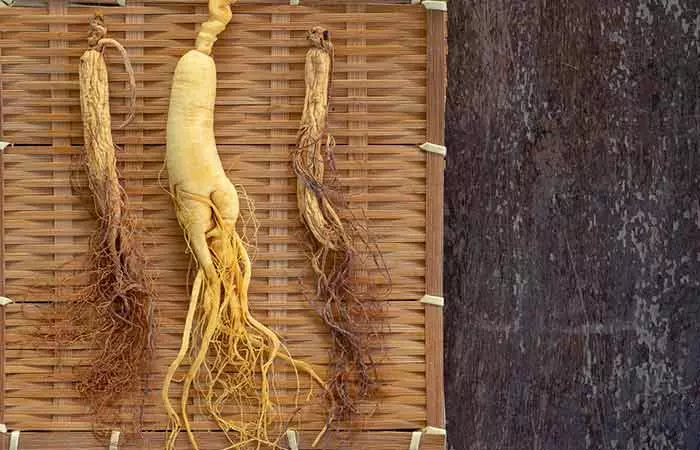
Ginseng is a popular Chinese herbal medicine. A study shows that red ginseng improves the proliferation of hair cells (keratinocytes) and suppresses hair fall-inducing biomolecules (DHT) (11). Another study confirms that ginseng extract and ginseng oil help prevent hair cell death (apoptosis), preventing hair loss (12).
How To Use
- Mix 2 drops of ginseng with 3 tablespoons of olive oil.
- Massage this mixture onto the scalp in a circular motion.
- Wear a shower cap and wait for 30 minutes.
- Wash your hair thoroughly.
- Do this twice a week.
6. Rosemary
Rosemary is also a popular herbal home remedy to induce hair growth and stop hair loss. Rosemary leaf extract stimulates hair regrowth, and rosemary oil works as good as a 2% minoxidil solution for treating androgenetic alopeciai Permanent loss of hair that occurs in different patterns in men and women due to genetic reasons. (13), (14).
Doro, a vlogger, shared her experience of using rosemary water for hair growth. She said, “My hair grew a quarter-inch. When I run my fingers through my hair, it feels super silky. I barely had hair shedding in my hair wash (i).”
How To Use
- Mix 2 drops of rosemary oil with 5 ml of coconut oil. Shake the bowl well.
- Massage this oil-blend onto the scalp and hair.
- Wear a shower cap and wait for 20 minutes before washing.
- Do this twice a week for at least 5 months.
7. Amla
Amla or Indian gooseberry is a fruit loaded with vitamin C. It is also rich in antioxidants and polyphenolsi Naturally occurring compounds that help protect the body's tissues from oxidative stress and other toxic compounds. that help stimulate hair growth (15). Amla also makes the hair soft and shinier (16).
How To Use
- Slice 3-4 amlas and blend them with a little water.
- Strain out the juice.
- Apply this juice to your scalp with a cotton ball.
- Massage your scalp gently.
- Wait for 20 minutes and wash your hair.
- Do this once a week.
Note:
You can also prepare a hair mask with yogurt, amla, and coconut oil.
8. Peppermint
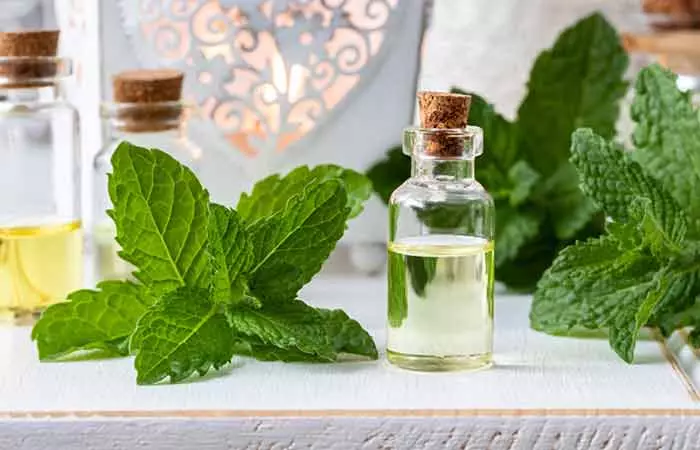
If drinking peppermint tea can help you relax and improve digestion, applying peppermint hair oil to your scalp can help enhance hair growth. A study found peppermint oil to be more effective in increasing follicle number, follicle depth, and follicle density than minoxidil and jojoba oil (17).
How To Use
- Mix 2 drops of peppermint oil and 10 ml of coconut oil.
- Massage this oil blend onto your scalp.
- Wear a shower cap and wait for 30 minutes.
- Wash your hair with shampoo.
- Do this twice a week.
9. Moringa
Moringa oil is a great hair growth stimulant. It has anti-inflammatory, anti-pollution, and anti-dandruff properties. It also helps get rid of split ends (18). Here’s more about the benefits of moringa oil for the hair, skin, and health.
How To Use
- Mix 2 parts of moringa oil with 1 part of argan oil.
- Massage this oil blend onto the scalp.
- Apply it to the hair strands.
- Wear a shower cap and wait for 30 minutes.
- Wash your hair with a mild shampoo.
- Do this twice a week.
 Quick Tip
Quick Tip10. Reetha
Reetha or soapnut is a natural and reusable shampoo. The saponins in the soapnuts are natural surfactants that help make the hair shiny, soft, and manageable (19). Soapnut has antifungal and antibacterial properties that may prevent scalp infections and dandruff (20).
How To Use
- Remove the seeds of 15-20 soapnuts and toss the fleshy part into a saucepan.
- Add 150 ml of water and boil until the water reduces to half.
- After the solution cools down, mash the soapnuts.
- Strain this solution and use the liquid as a shampoo.
11. Calendula
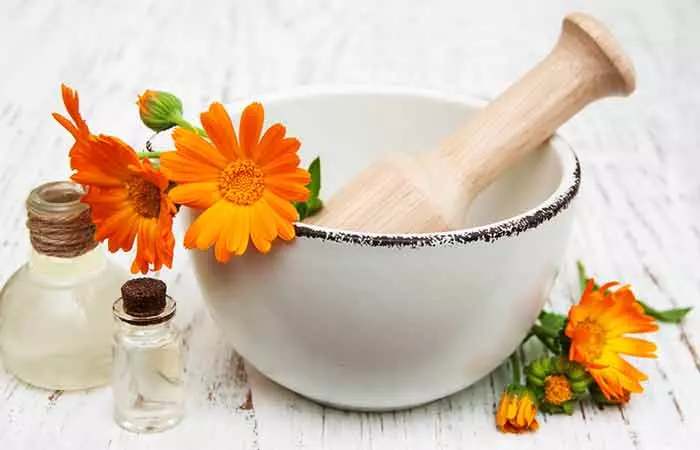
Calendula oil and extract are good for stimulating hair growth. It has antimicrobial, antibacterial, and antioxidant properties (21). Anecdotal evidence suggests that calendula is an excellent herb for achieving naturally thick hair.
How To Use
- Add 10 calendula flowers to 200 ml of water. Let the mixture boil.
- Strain this solution and massage the extract onto your scalp.
- Wash your hair with shampoo after 20 minutes.
- Do this at least once a week.
Note:
You can also massage calendula oil onto your scalp.
12. Henna
Henna is popularly used to dye hair. But, additionally, henna can improve hair growth and shine. It is specifically useful for people dealing with hair loss or alopecia. Alopecia occurs when excessive testosterone (androgen) gets converted to dihydrotestosterone (DHT). A study confirms that henna can induce hair growth by reducing androgen levels (22).
How To Use
- Mix 8 tablespoons of henna powder with lukewarm water.
- Let it seep overnight.
- Mix 2 tablespoons of coconut oil and juice of half a lime.
- Section your hair. Wear gloves.
- Apply the mixture to your scalp and hair.
- Let it dry for about 30 minutes.
- Wash your hair with water
- Use a shampoo and conditioner.
- Do this at least twice a month for thick and shiny hair.
13. Saw Palmetto
Saw palmetto is a palm tree with fan-like pointed leaves. The berries of this plant inhibit the conversion of excess testosterone to dihydrotestosterone (DHT). Saw palmetto is quite a sought-after ingredient for reducing hair fall due to androgenic alopecia (23).
How To Use
Saw palmetto works best when taken as a supplement.
Note: Consult a dermatologist before taking a saw palmetto supplement. Some herbal supplements have side effects and might aggravate hair loss.
14. Brahmi
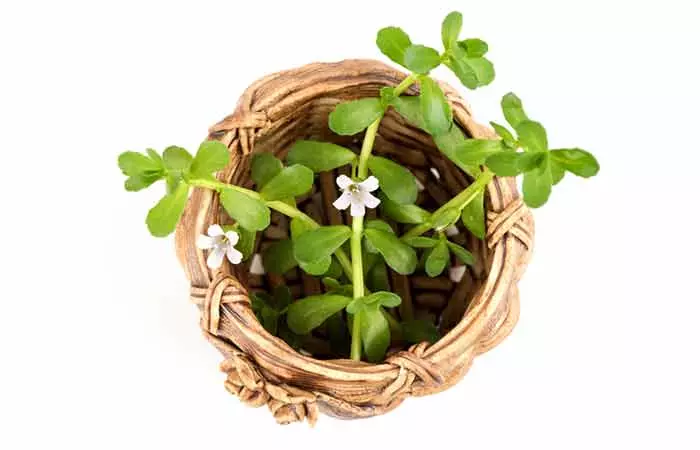
Brahmi or Bacopa Monnieri is an ancient Ayurvedic medicine for treating hair loss. Brahmi oil helps improve blood circulation to the scalp, enlarges the follicle size, and prolongs the anagen phasei A phase lasting for 2-8 years where the hair shaft actively generates and extends by about 1 cm every 28 days. of the hair growth cycle (24).
How To Use
- Massage brahmi oil onto your scalp gently in a circular motion.
- Wait for 20-30 minutes and wash your hair.
- Do this twice a week.
Note: Your hair will strongly smell of garlic. Shampoo your hair twice to get rid of the smell.
15. Shikakai
Shikakai or Acacia Concinna is a natural cleanser and scalp soothing Ayurvedic herb. It is rich in vitamin C and phytochemicals that help reduce dandruff, itching, and scalp dryness (25), (26). This helps improve scalp health and promotes hair growth.
How To Use
- Soak 10 g of shikakai, 10 g of reetha, and 5 g of amla in 750 ml of water overnight.
- Boil the water in the morning.
- Mash the ingredients and strain the liquid.
- Use this liquid as a hair mask, hair tonic, or shampoo.
- Do this at least once a week.
are a few easy ways to use shikakai for hair growth.
16. Garlic
Garlic is used to add flavor to various cuisines around the world. Evidence suggests that topical application of 5% garlic gel can improve hair growth in people suffering from androgenetic alopecia (27). But if it is not possible to prepare garlic gel at home, you can make garlic oil. Scroll down for the recipe.
How To Use
- Soak 8 cloves of garlic in 100 ml of almond or olive oil for a week.
- Heat this oil for 2 minutes and massage onto the scalp apply it.
- Wait for 20 minutes and wash your hair with a shampoo.
Note:
Your hair will strongly smell garlic. Shampoo your hair twice to get rid of the smell.
17. Fenugreek
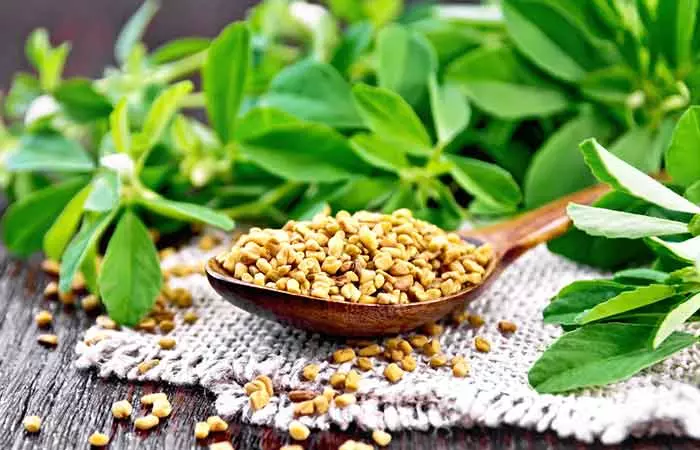
Fenugreek seeds are loaded with B vitamins, antioxidants, saponins, andflavonoidsi Naturally occurring substances that have anti-inflammatory properties and provide protection against oxidative stress. . Scientists found that consuming fenugreek helped increase hair thickness and volume (28). You can also apply fenugreek seeds to your scalp for shiny and strong hair.
How To Use
- Soak 2 tablespoons of fenugreek seeds in a glass of water overnight.
- Drink this water in the morning.
Or
- Blend the soaked fenugreek seeds and water.
- Apply this paste to the scalp and hair as a mask.
- Wait for it to dry.
- Wash your hair with a gentle shampoo.
18. Bhringraj
Bhringraj or Eclipta Alba (L.) is a traditional Ayurvedic medicine for stopping hair loss. A study on laboratory animals shows that bhringraj extracts significantly improve hair growth by modulating the hair follicles’ growth cycle (29).
How To Use
- Mix 2 parts of bhringraj oil with 2 parts of castor oil.
- Massage this oil blend to the scalp gently in a circular motion.
- Wait for 30 minutes and wash your hair.
- Do this twice a week.
are some other ways to use bhringraj oil for hair growth.
19. Nettle
Nettle or stinging nettle plant is a nutritious plant with small hairs that sting. This herbal medicine has antibacterial and antioxidant properties. The application of nettle or consumption of its supplements can help reduce hair loss (30).
Note: Consult a dermatologist before consuming any herbal supplement to avoid possible side effects.
How To Use
- Add a bunch of nettle leaves to 500 ml of water.
- Let the water boil for 2-3 minutes. Cool this liquid to room temperature.
- Strain the liquid and use the water for rinsing your hair.
- Do this once a week.
20. Gotu Kola
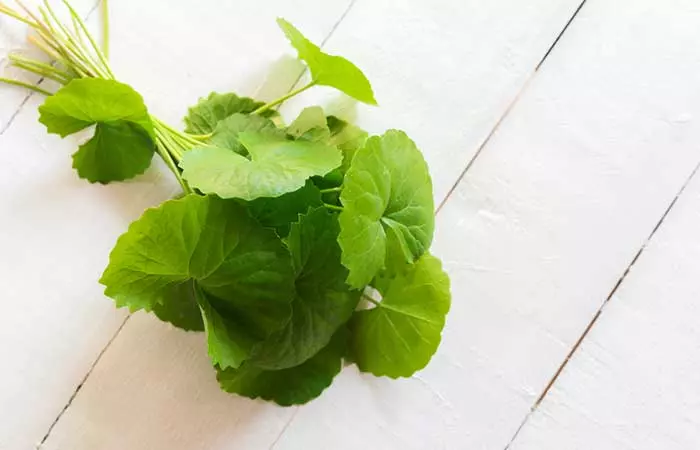
Gotu kola or Centella Asiatica is a medicinal herb used to treat various skin and health disorders. A 2018 study found that gotu kola induced hair growth by scavenging the harmful free oxygen radicals and stimulating the gene responsible for promoting hair growth (31).
How To Use
- Blend a cup of gotu kola with a little water.
- Apply this paste to your scalp and hair.
- Wait for 30 minutes and wash your hair.
- Do this once a week.
Note:
You can also apply gotu kola oil to your hair and scalp.
21. Green Tea
Some research shows that using green tea extract on the scalp is effective in reducing scalp oiliness (32). Additionally, green tea was found to be beneficial in reducing androgenetic alopecia or male pattern baldness (33).
How To Use
- Steep 1-2 green tea bags or 1-2 teaspoons of green tea leaves in a cup of hot water for 5-10 minutes.
- Let the tea cool down to room temperature.
- Use the green tea as a final rinse after shampooing. Massage it into your scalp.
- Leave it on for 10-15 minutes. Rinse with cool water.
- Do this 2-3 times a week for best results.
There you have it 21 best herbs to help with hair loss. They aid hair growth, improve hair strength, and boost shine. These herbal home remedies are effective when a proper hair care routine is followed. Do not stop using them after one or two weeks. Wait for at least three months for visible results. Also, follow a nutritious diet and get at least 7 hours of sleep to keep your hair healthy.
Apart from that, it’s also important to determine what’s causing your hair loss. Hair loss can be triggered by multiple factors and understanding the underlying factors is key to choosing the right treatment method.
Key Takeaways
- Herbs can promote hair growth and manage hair loss. They also boost hair shine and strength.
- Aloe vera, hibiscus, lavender, ginseng, and rose are some herbs that positively affect hair health.
- Each of them has a different mode of action, is aromatic, and improves mood.
- While they may take a while to show results, they have minimal side effects.
Causes Of Hair Loss
Hair loss can stem from various factors (34):
- Genetics: Hair loss can be hereditary. If you have a family history of hair loss, chances are high that you might also experience similar issues. Various genetic factors, coupled with deficiencies, hair loss disorders, etc. may cause excessive hair loss and even pattern baldness.
- Hormonal Changes: Conditions like pregnancy, menopause, PCOS, or thyroid imbalances can cause hair loss. It’s because the changes in the hormone levels may disrupt the hair growth cycle, leading to excessive shedding.
- Nutritional Deficiencies: The lack of essential nutrients like iron, vitamin D, and protein may lead to hair thinning. Therefore, it’s important to consume a nutritious diet or take supplements after consulting a doctor.
- Stress: Severe emotional stress disrupts the formation of hair follicles and may also impair the stem cells necessary for hair growth. This may lead to temporary hair loss or telogen effluvium.
- Medical Conditions: Diseases such as alopecia areata, autoimmune disorders, or scalp infections may lead to hair loss. In such cases, treating the underlying condition may help restore hair health.
Infographic: 10 Herbs That Promote Hair Growth And How To Use Them
Hair fall is the most common issue most people deal with. A receding hairline and thinning hair are major concerns that usually do not have natural solutions. But there is some good news – in the following infographic, we have listed the 10 easily available herbs known to promote hair growth. These work by improving blood circulation to the scalp and restricting 5 alpha-reductase, an enzyme known to trigger hair loss.

Illustration: StyleCraze Design Team
That’s all, dear readers — your ultimate guide on utilizing various herbs, essential oils, and natural remedies for hair growth and wellness. From promoting hair growth to increasing the strength of your strands and boosting shine, these herbs have much to offer. But along with trying these home remedies, you must follow your haircare routine. Maintain consistency, remember that achieving healthy hair with herbs takes time, and be patient until you see the results. Apart from that, adopt a healthy lifestyle to give your hair all the nutrition it needs. Eat nutritious food, drink plenty of water, sleep well, and have a holistic approach to hair care.
Frequently Asked Questions
Does horsetail grow hair?
Horsetail is said to have several hair benefits, including the ability to grow hair. It can be used alone or in combination with other hair supplements. It can also be consumed as a tea or a capsule. Although there is not a lot of scientific data to support this claim, many people firmly believe that it strengthens the hair and prevents hair loss.
Is ginger good for hair?
Ginger has been demonstrated to help treat dandruff and reduce hair loss. However, there is conflicting research regarding whether it accelerates hair growth. While some experts contend ginger may promote hair growth, other studies suggest the opposite. As a result, practice caution while applying it to your hair. Avoid applying ginger to your scalp or hair if you have a ginger allergy.
Which herb is the king of hair growth?
Bringharaj, the king of herbs, improves blood circulation in the scalp and promotes hair growth. It also helps the strands absorb nutrients that help strengthen the hair.
What is the Arabic herb for hair growth?
Ghergir or Arugula improves microcirculation and strengthens your hair while promoting hair growth and thickness.
Can herbs be used in combination with other treatments for hair loss?
It is best to avoid the usage of any herbs in combination with other treatments without seeking any expert advice. The interaction between the active compounds in the herbs and the ingredients of the treatment might react with each other and cause adverse reactions. Consult a doctor or a specialist beforehand.
Are there any side effects or risks associated with using herbs for hair growth?
Topical application of herbs may lead to thinning hair, increased hair loss, scalp irritation, inflammation, or dryness. It is best to test on a small area before applying. Discontinue the use of the herbs if you experience an increase in hair loss.
How long does it take to see results when using herbs for hair growth?
It might take anywhere from 1-5 years for any changes in your hair to be visible.
Can I use herbs for hair growth if I have a scalp condition or sensitive skin?
You can use herbs such as rosemary and peppermint to help soothe the scalp. Their antifungal properties are effective on sensitive skin as well.
Illustration: Best Herbs That Stimulate Hair Growth Naturally
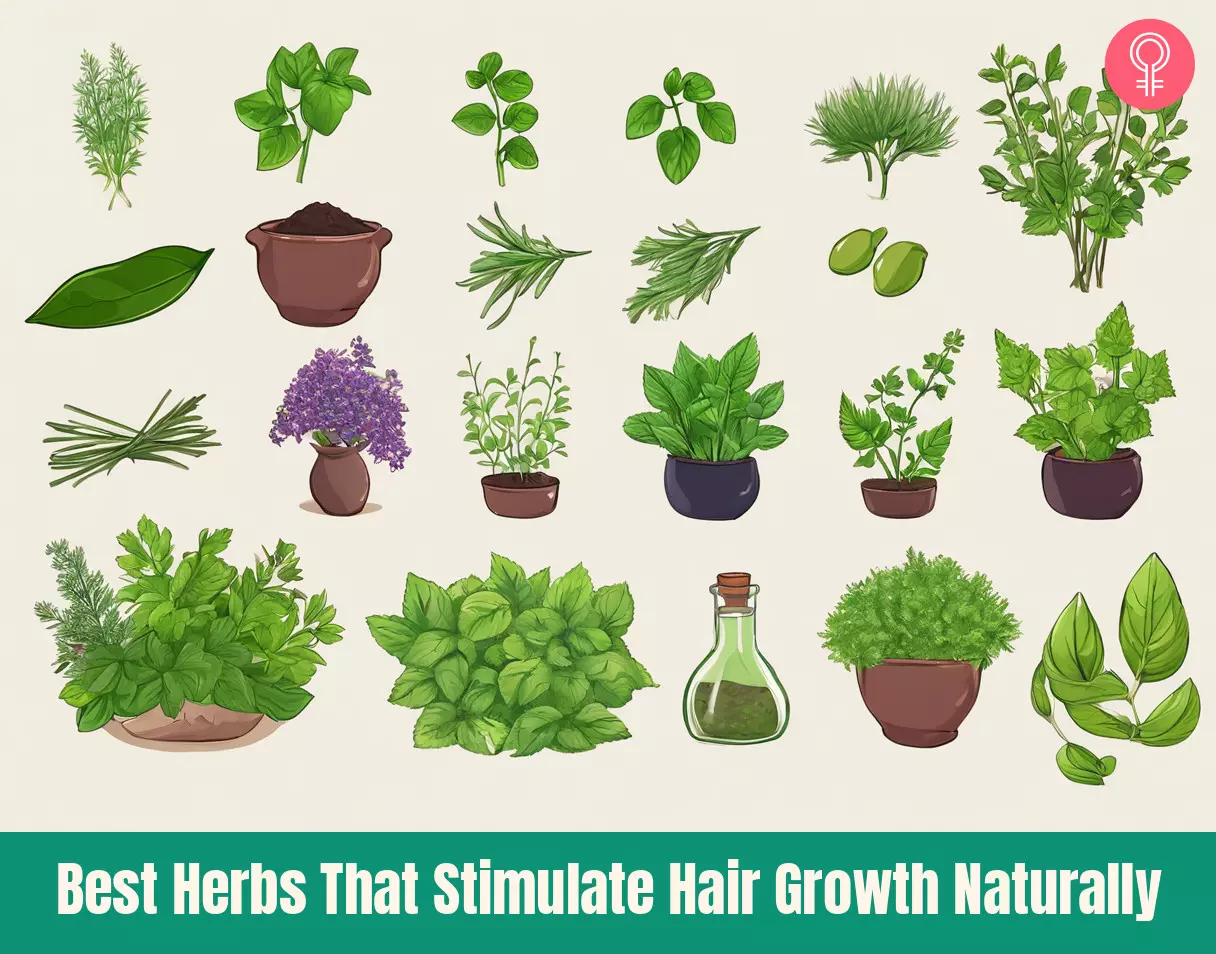
Image: Stable Diffusion/StyleCraze Design Team
Indulge in a nourishing herbal hair mask recipe through this captivating video. Unveil the secret to thicker, longer, and shinier hair with this easy-to-make mask. Try it out to achieve healthy luscious locks.
Personal Experience: Source
StyleCraze's articles are interwoven with authentic personal narratives that provide depth and resonance to our content. Below are the sources of the personal accounts referenced in this article.
i. I tried rosemary water on my hair for 7 days & this happened! *before & after results*https://www.youtube.com/watch?v=J-x8zYkVpqE
References
Articles on StyleCraze are backed by verified information from peer-reviewed and academic research papers, reputed organizations, research institutions, and medical associations to ensure accuracy and relevance. Read our editorial policy to learn more.
- Hair Growth: Focus on Herbal Therapeutic Agent
https://pubmed.ncbi.nlm.nih.gov/26058803/ - Herbal preparations for the treatment of hair loss
https://pubmed.ncbi.nlm.nih.gov/31680216/ - Protective Role of Nutritional Plants Containing Flavonoids in Hair Follicle Disruption: A Review
https://www.ncbi.nlm.nih.gov/pmc/articles/PMC7013965/ - Ethnopharmacological survey of home remedies used for treatment of hair and scalp and their methods of preparation in the West Bank-Palestine
https://www.ncbi.nlm.nih.gov/pmc/articles/PMC5499037/ - Burden of hair loss: stress and the underestimated psychosocial impact of telogen effluvium and androgenetic alopecia
https://pubmed.ncbi.nlm.nih.gov/15304082/ - Randomized trial of aromatherapy. Successful treatment for alopecia areata
https://pubmed.ncbi.nlm.nih.gov/9828867/ - Hibiscus syriacus Extract from an Established Cell Culture Stimulates Skin Wound Healing
https://www.ncbi.nlm.nih.gov/pmc/articles/PMC5733167/ - In vivo and in vitro evaluation of hair growth potential of Hibiscus rosa-sinensis Linn
https://pubmed.ncbi.nlm.nih.gov/12963149/ - Therapeutic efficacy of rose oil: A comprehensive review of clinical evidence
https://www.ncbi.nlm.nih.gov/pmc/articles/PMC5511972/ - Skin antiinflammatory activity of rose petal extract (Rosa gallica) through reduction of MAPK signaling pathway
https://www.ncbi.nlm.nih.gov/pmc/articles/PMC6261181/ - Red Ginseng Extract Promotes the Hair Growth in Cultured Human Hair Follicles
https://www.ncbi.nlm.nih.gov/pmc/articles/PMC4350143/ - Hair-Growth Potential of Ginseng and Its Major Metabolites: A Review on Its Molecular Mechanisms
https://www.ncbi.nlm.nih.gov/pmc/articles/PMC6163201/ - Promotion of hair growth by Rosmarinus officinalis leaf extract
https://pubmed.ncbi.nlm.nih.gov/22517595/ - Rosemary oil vs minoxidil 2% for the treatment of androgenetic alopecia: a randomized comparative trial
https://pubmed.ncbi.nlm.nih.gov/25842469/ - Emblica (Phyllanthus emblica Linn.) Fruit Extract Promotes Proliferation in Dermal Papilla Cells of Human Hair Follicle
https://scialert.net/fulltext/?doi=rjmp.2011.95.100 - Clinical Study to Evaluate the Efficacy and Safety of a Hair Serum Product in Healthy Adult Male and Female Volunteers with Hair Fall
https://www.ncbi.nlm.nih.gov/pmc/articles/PMC7522433/ - Peppermint Oil Promotes Hair Growth without Toxic Signs
https://www.ncbi.nlm.nih.gov/pmc/articles/PMC4289931/ - Promising features of Moringa oleifera oil: recent updates and perspectives
https://www.ncbi.nlm.nih.gov/pmc/articles/PMC5146848/ - Shampoo and Conditioners: What a Dermatologist Should Know?
https://www.ncbi.nlm.nih.gov/pmc/articles/PMC4458934/ - Multifacetious Uses of Soapnut Tree A Mini Review
https://www.researchgate.net/publication/236632198_Multifacetious_Uses_of_Soapnut_Tree_-_A_Mini_Review - Anticandidal, antibacterial, cytotoxic and antioxidant activities of Calendula arvensis flowers
https://pubmed.ncbi.nlm.nih.gov/28011127/ - [Therapeutic effect of Impatiens balsamina, Lawsonia inermis L. and Henna on androgenetic alopecia in mice]
https://pubmed.ncbi.nlm.nih.gov/31852654/ - Serenoa Repens: Does It have Any Role in the Management of Androgenetic Alopecia?
https://www.ncbi.nlm.nih.gov/pmc/articles/PMC2840915/ - Preparation, evaluation and hair growth stimulating activity of herbal hair oil
https://www.jocpr.com/articles/preparation-evaluation-and-hair-growth-stimulating-activity-of-herbal-hair-oil.pdf - Synthesis and Evaluation of Herbal Based Hair Dye
https://benthamopen.com/contents/pdf/TODJ/TODJ-12-90.pdf - A CLINICAL STUDY ON EFFICACY OF SIYAKKAI (ACACIA CONCINNA) HAIR WASH ON DARUNAKA (PITIRIASIS CAPITIS)
https://www.researchgate.net/publication/322489340_A_CLINICAL_STUDY_ON_EFFICACY_OF_SIYAKKAI_ACACIA_CONCINNA_HAIR_WASH_ON_DARUNAKA_PITIRIASIS_CAPITIS - Complementary and Alternative Treatments for Alopecia: A Comprehensive Review
https://www.ncbi.nlm.nih.gov/pmc/articles/PMC6388561/ - Fenugreek+micronutrients: Efficacyof a food supplement against hair loss
https://www.researchgate.net/publication/251923543_Fenugreekmicronutrients_Efficacy_of_a_food_supplement_against_hair_loss - Ethnopharmacological Significance of Eclipta alba (L.) Hassk. (Asteraceae)
https://www.hindawi.com/journals/isrn/2014/385969/ - Urtica spp.: Ordinary Plants with Extraordinary Properties
https://www.mdpi.com/1420-3049/23/7/1664 - Enhanced VEGF Expression in Hair Follicle Dermal Papilla Cells by Centella asiatica Linn
https://www.researchgate.net/publication/322833300_Enhanced_VEGF_Expression_in_Hair_Follicle_Dermal_Papilla_Cells_by_Centella_asiatica_Linn - Development and clinical evaluation of green tea hair tonic for greasy scalp treatment
https://pubmed.ncbi.nlm.nih.gov/29394016/ - Human hair growth enhancement in vitro by green tea epigallocatechin-3-gallate (EGCG)
https://pubmed.ncbi.nlm.nih.gov/17092697/ - An overview of the genetic aspects of hair loss and its connection with nutrition
https://pmc.ncbi.nlm.nih.gov/articles/PMC9710406/
Read full bio of Dr. Meena Konada
Read full bio of Arshiya Syeda
Read full bio of Anjali Sayee
Read full bio of Monomita Chakraborty






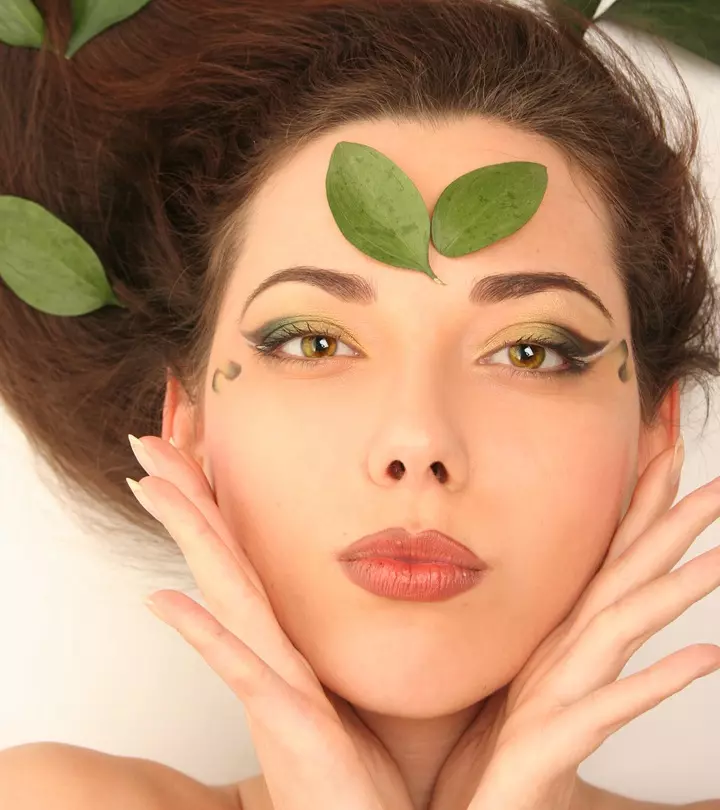
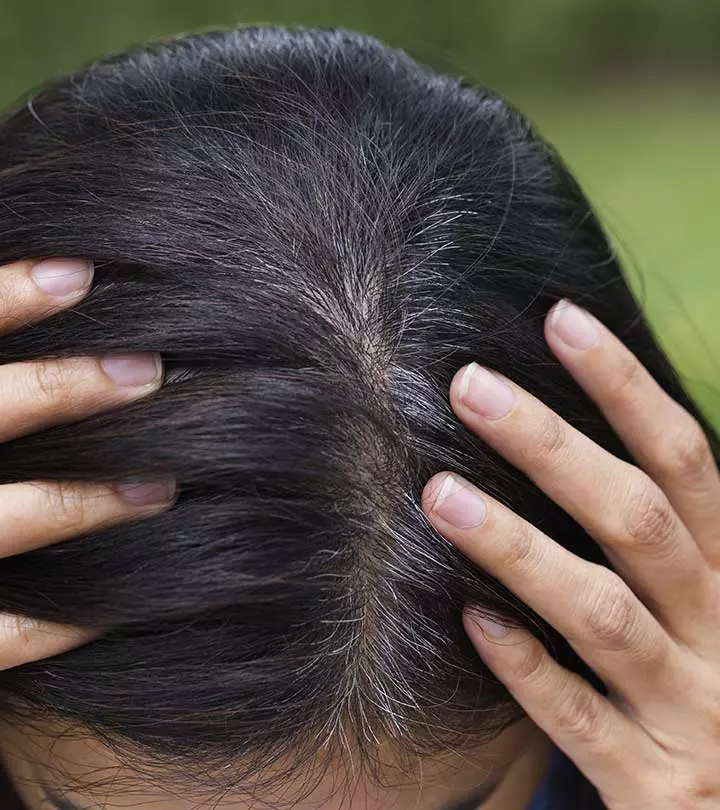
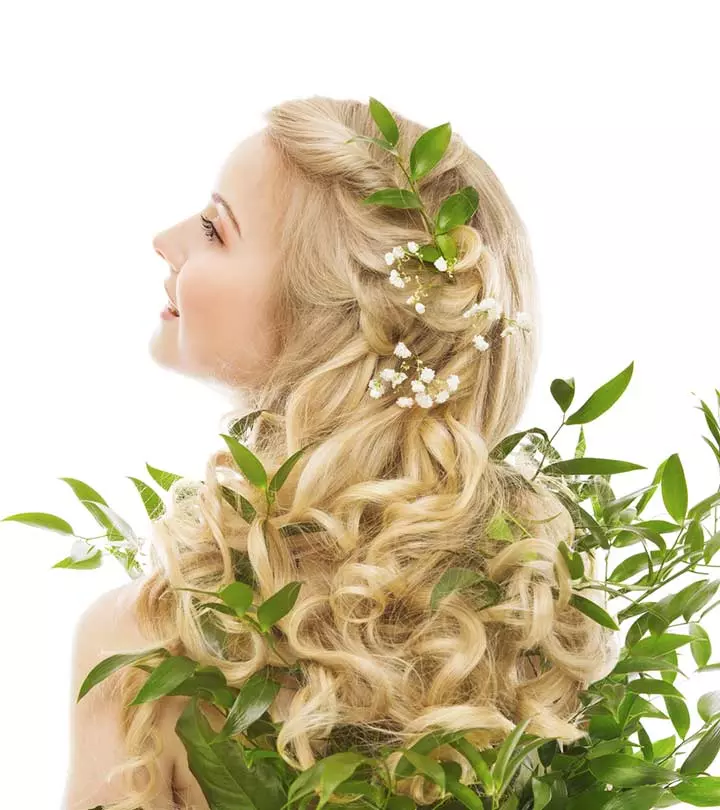
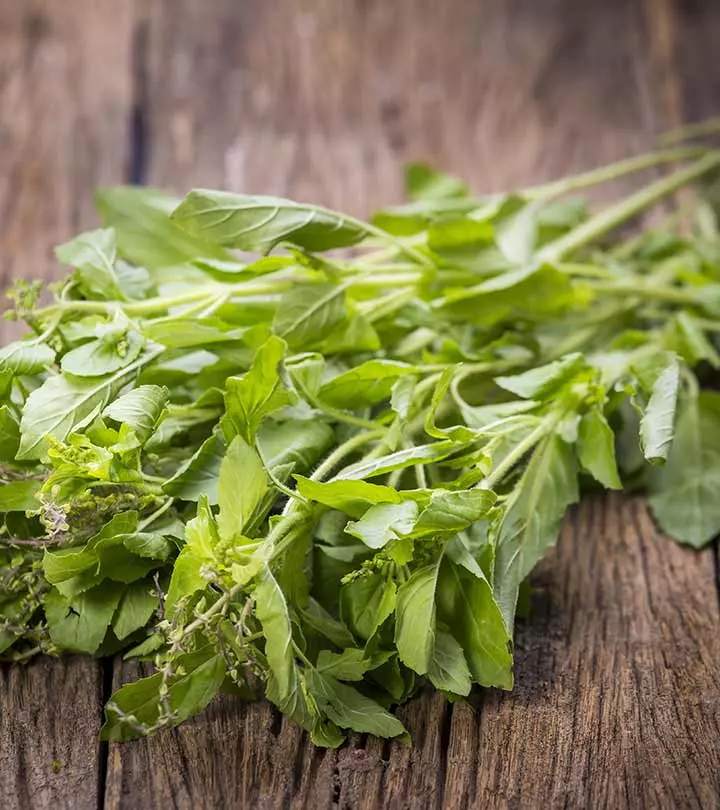
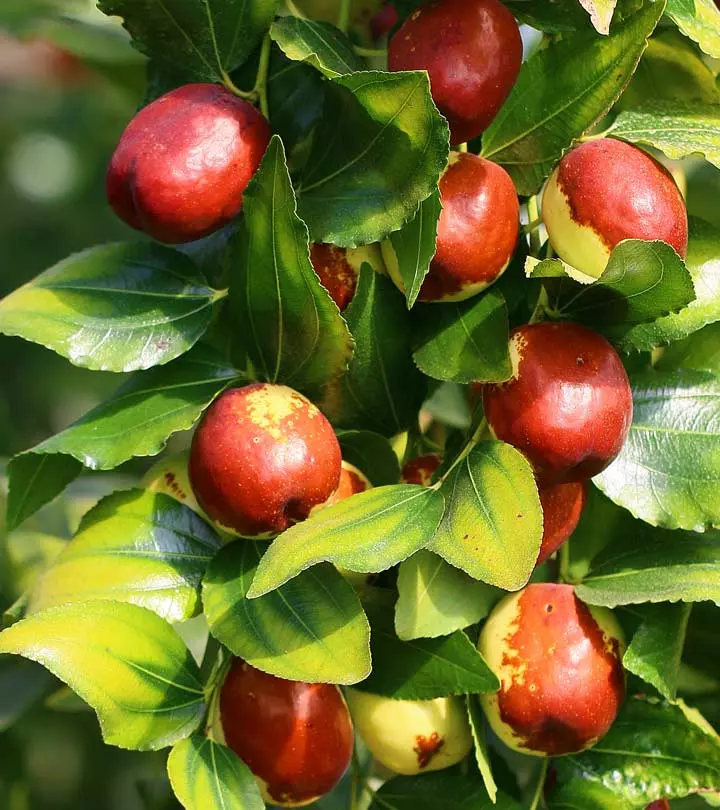

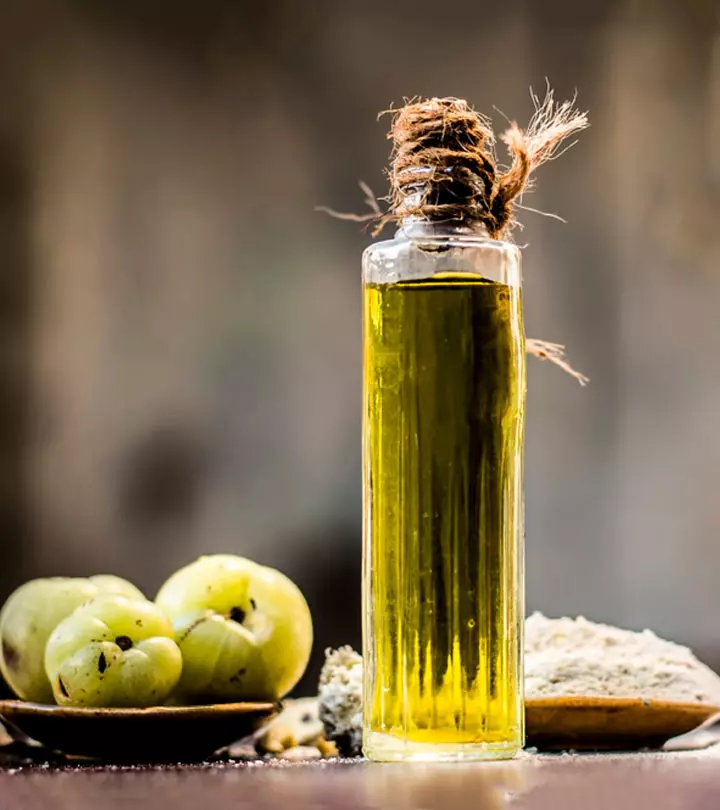
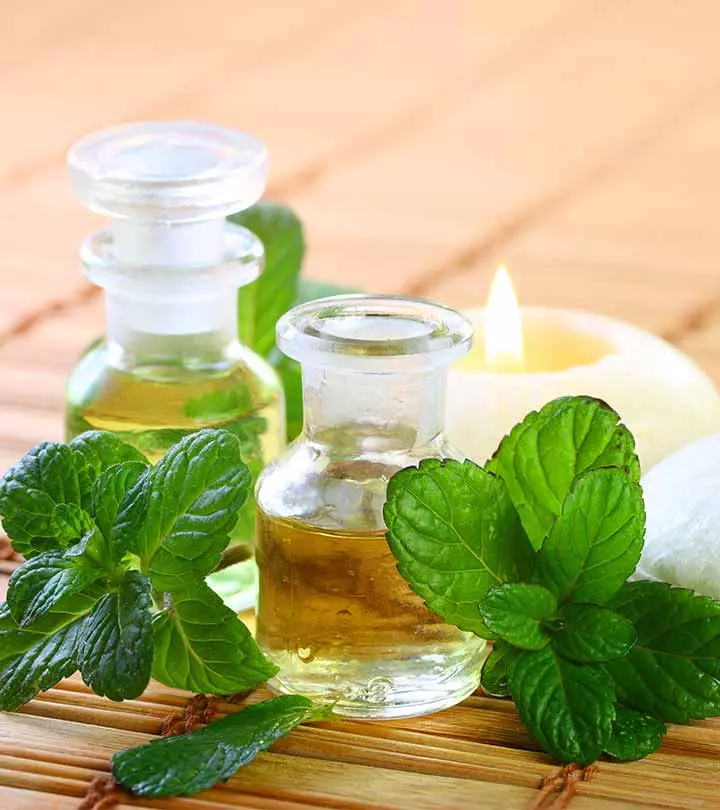
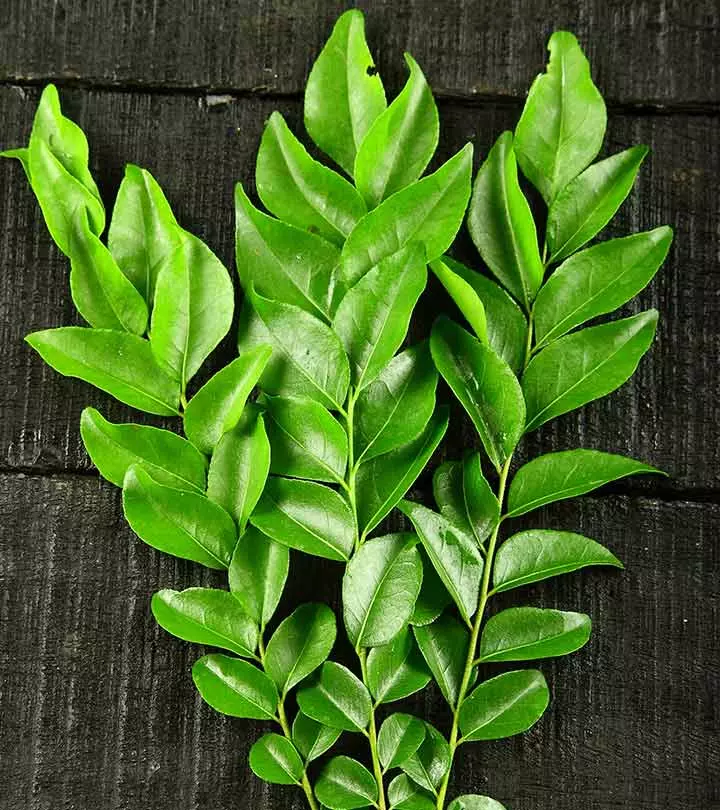
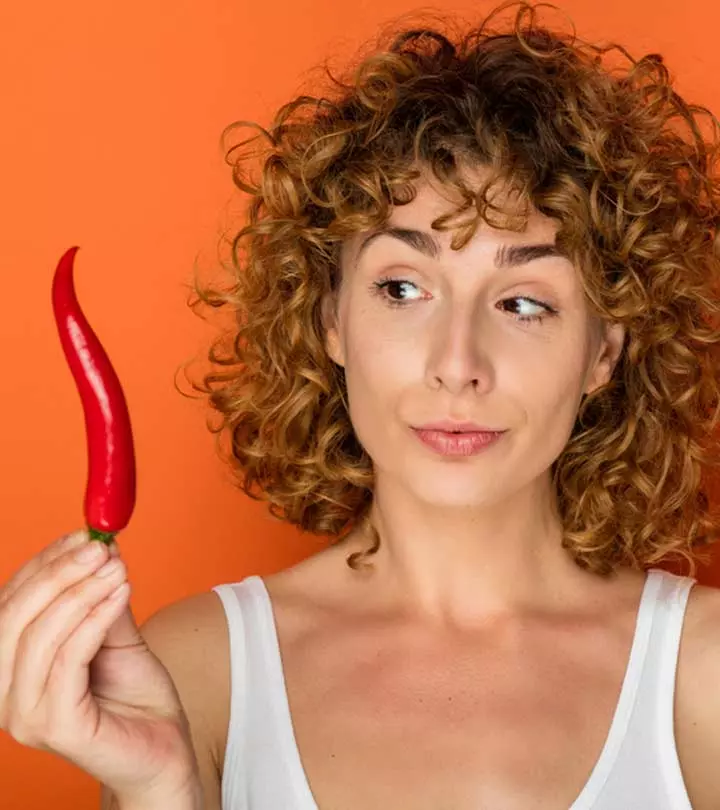

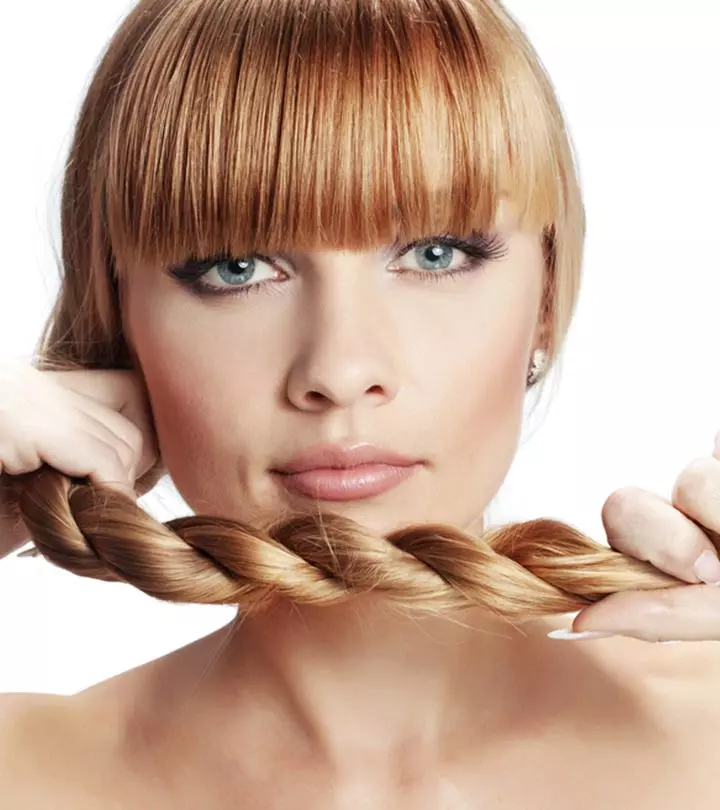
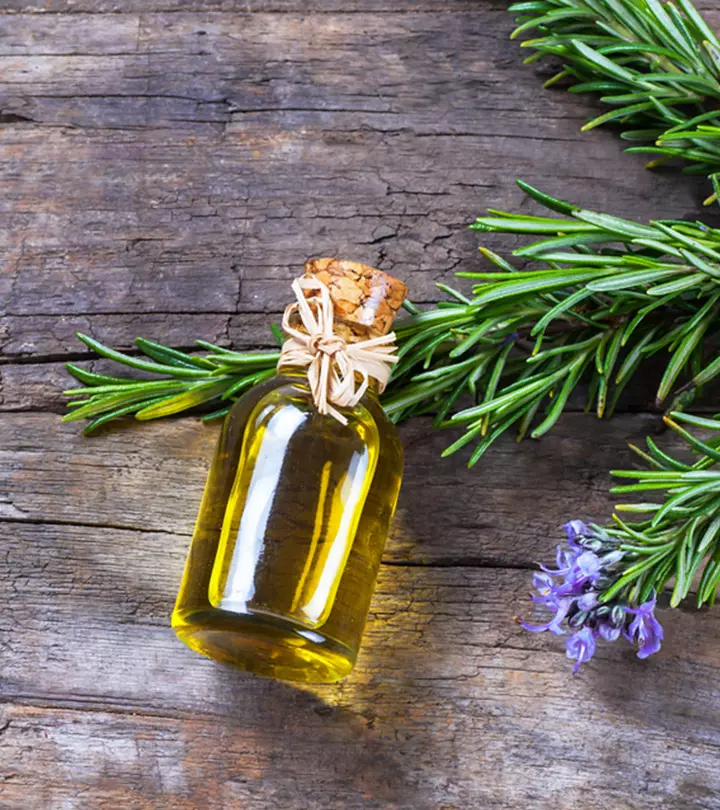
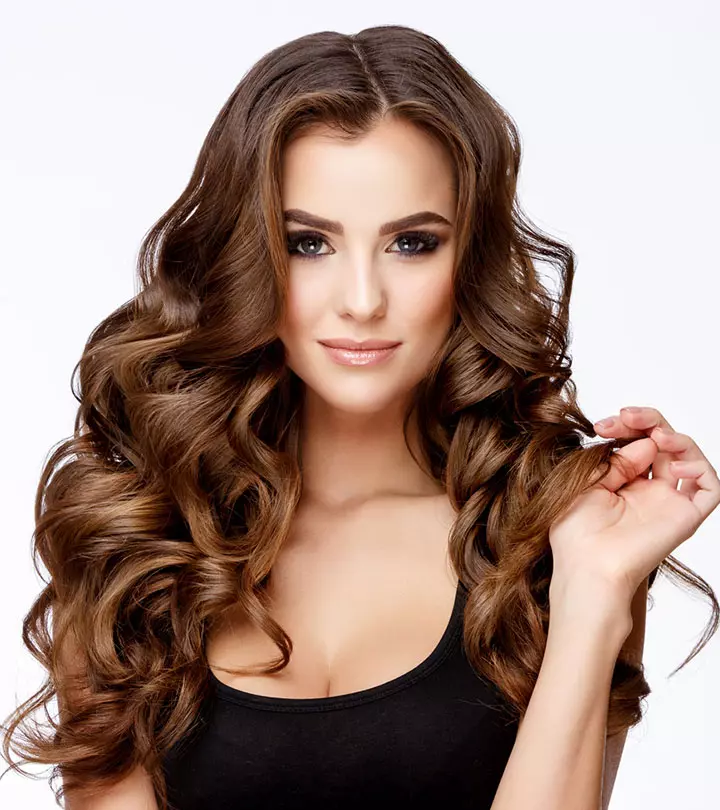
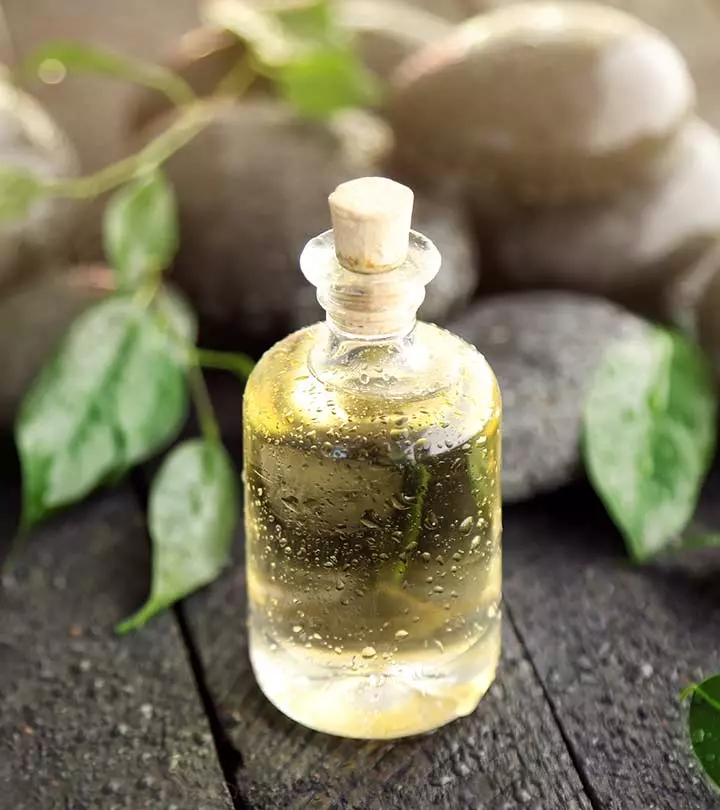



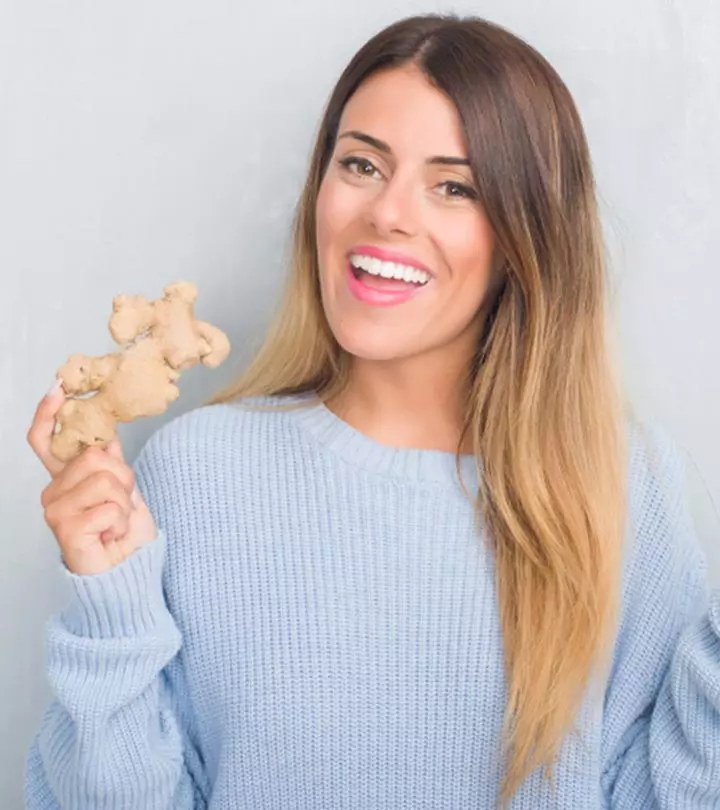
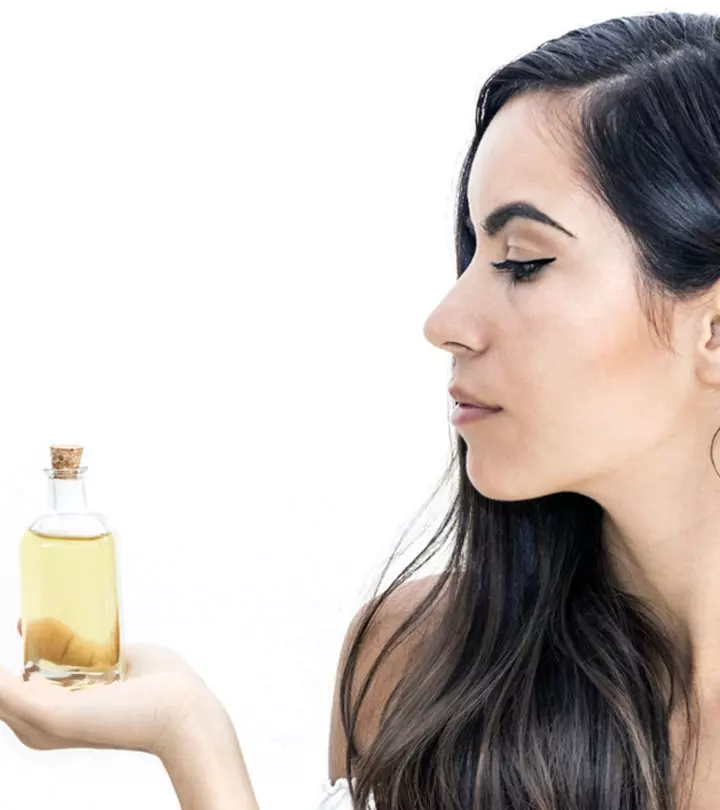
Community Experiences
Join the conversation and become a part of our empowering community! Share your stories, experiences, and insights to connect with other beauty, lifestyle, and health enthusiasts.